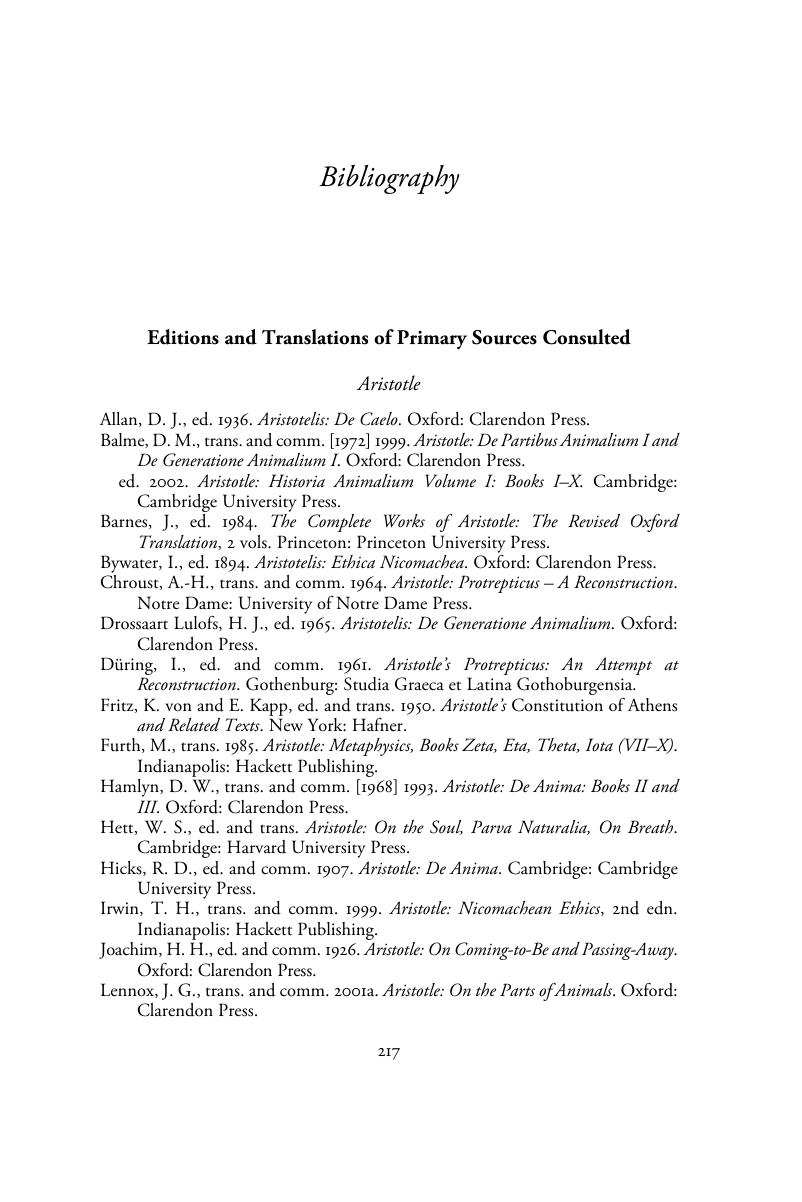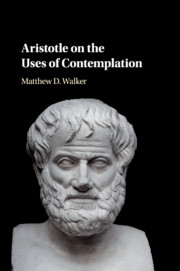Book contents
- Aristotle on the Uses of Contemplation
- Aristotle on the Uses of Contemplation
- Copyright page
- Contents
- Acknowledgments
- Note on Texts, Translations, and Abbreviations
- Chapter 1 How Can Useless Contemplation Be Central to the Human Good?
- Chapter 2 Useless Contemplation as an Ultimate End
- Chapter 3 The Threptic Basis of Living
- Chapter 4 Authoritative Functions, Ultimate Ends, and the Good for Living Organisms
- Chapter 5 The Utility Question Restated – and How Not to Address It
- Chapter 6 The First Wave
- Chapter 7 The Second Wave
- Chapter 8 The Third Wave
- Chapter 9 The Anatomy of Aristotelian Virtue
- Chapter 10 Some Concluding Reflections
- Bibliography
- Index Locorum
- Index
- References
Bibliography
Published online by Cambridge University Press: 11 May 2018
- Aristotle on the Uses of Contemplation
- Aristotle on the Uses of Contemplation
- Copyright page
- Contents
- Acknowledgments
- Note on Texts, Translations, and Abbreviations
- Chapter 1 How Can Useless Contemplation Be Central to the Human Good?
- Chapter 2 Useless Contemplation as an Ultimate End
- Chapter 3 The Threptic Basis of Living
- Chapter 4 Authoritative Functions, Ultimate Ends, and the Good for Living Organisms
- Chapter 5 The Utility Question Restated – and How Not to Address It
- Chapter 6 The First Wave
- Chapter 7 The Second Wave
- Chapter 8 The Third Wave
- Chapter 9 The Anatomy of Aristotelian Virtue
- Chapter 10 Some Concluding Reflections
- Bibliography
- Index Locorum
- Index
- References
Summary

- Type
- Chapter
- Information
- Aristotle on the Uses of Contemplation , pp. 217 - 236Publisher: Cambridge University PressPrint publication year: 2018

